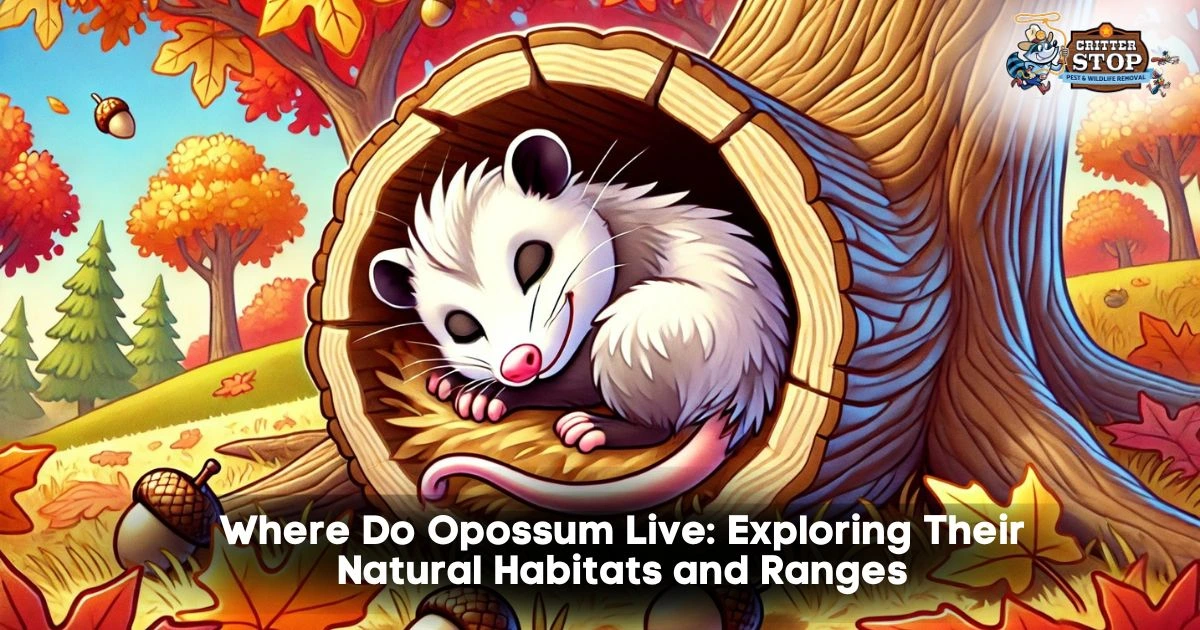
Opossums are fascinating creatures known for their adaptability and resilience. They primarily inhabit a range from southern Canada to northern Argentina, thriving in diverse environments such as forests, grasslands, and urban areas. This broad distribution speaks to their ability to find shelter and food in various landscapes.
In urban settings, opossums often nest in backyards, under decks, or garages, making them common sights. Their nocturnal behavior allows them to evade many predators while foraging for fruits, insects, and small animals. Understanding where opossums live can illuminate their role in local ecosystems and human interactions.
As these marsupials continue to thrive in wild and urban landscapes, learning more about their habitats can enhance appreciation for their unique ecological contributions. Exploring the specifics of opossum ranges can reveal important insights into their behavior and survival strategies.
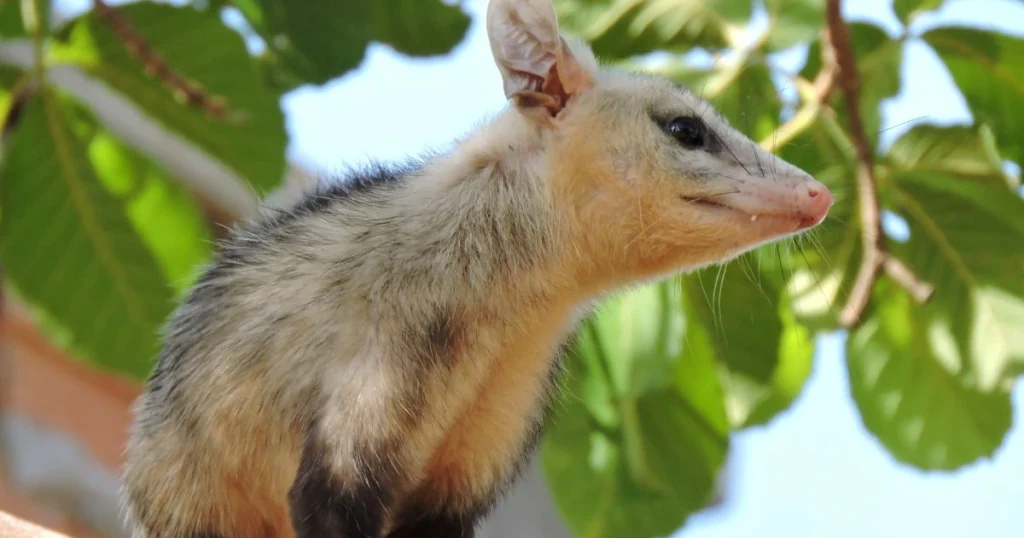
Opossums are adaptable creatures that thrive in a variety of habitats. Their ability to live in natural and human-dominated environments speaks to their versatility and survival skills.
In the wild, opossums prefer dense forests, woodlands, and areas near water sources. These environments provide ample food and shelter. Common locations include:
Opossums are nocturnal and establish their homes in tree hollows, brush piles, or burrows made by other animals. Their significant range, often spanning several miles, allows them to forage for food, which includes fruits, insects, and small animals. This flexibility in habitat choice contributes to their survival across various regions.
Urban settings increasingly support opossum populations. They can often be found in:
In these areas, opossums adapt using human food sources, such as trash cans and gardens. Their ability to thrive in suburban environments demonstrates their resourcefulness. They often seek shelter in sheds, attics, or under decks, taking advantage of spaces that offer safety from predators. This adaptability has led to their presence in many cities across North America, enabling them to coexist with humans while maintaining their natural behaviors.
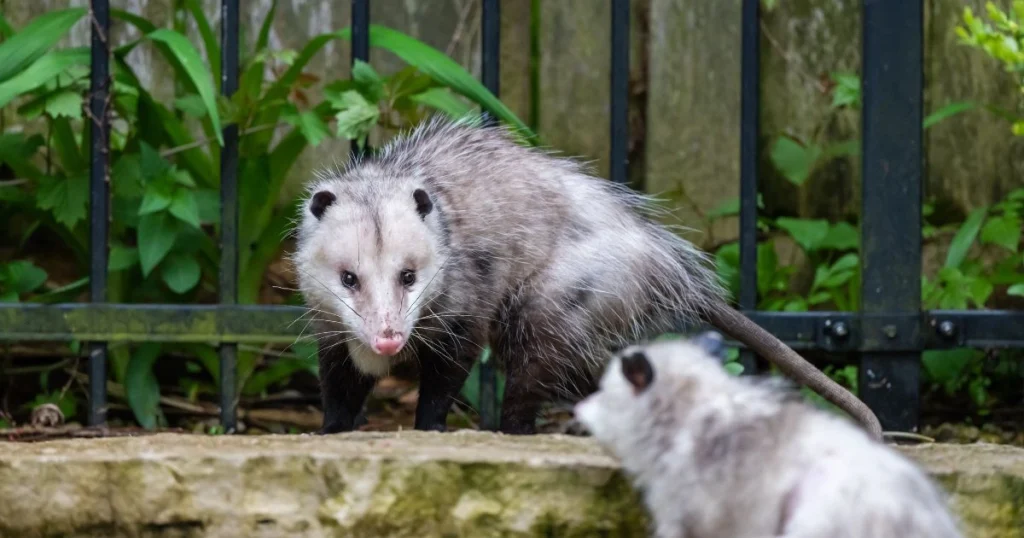
Opossums are primarily found in North America, though their range extends to various locations. Their adaptability to different environments has allowed them to thrive in diverse habitats.
The Virginia opossum, North America's only marsupial, inhabits areas throughout the continent. Their range extends from southern Canada down to central Costa Rica in the southern part of Central America.
Opossums prefer habitats such as forests, shrublands, and urban areas. They are commonly spotted in towns and cities, often foraging through garbage.
Their ability to tolerate varying climates—temperate regions to tropical locales—exemplifies their adaptability.
Over the past century, opossums have expanded their range significantly. Initially, they were more concentrated in the southeastern United States but have migrated northward.
This migration is largely attributed to habitat changes and urbanization. They have learned to thrive in human-altered landscapes, which provide ample food resources.
Climate change may also influence their movement, as warmer temperatures enable them to inhabit previously unfavorable regions.
As they continue to establish populations in new areas, understanding their geographical distribution remains crucial in managing ecosystems where they thrive.
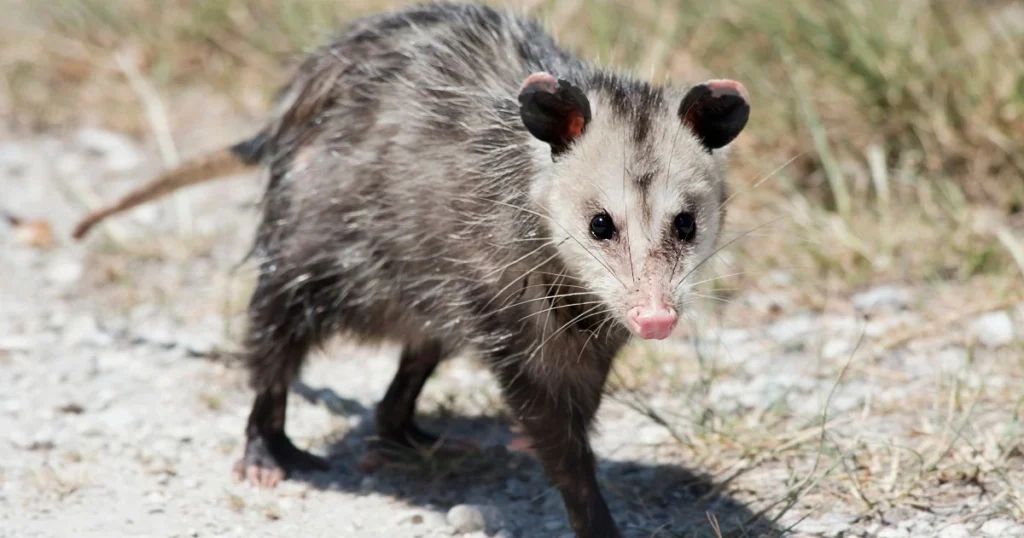
Opossums exhibit a varied diet and unique foraging behaviors that reflect their adaptability. Their food choices and foraging strategies are crucial to their survival across different environments.
Opossums are omnivores and consume various foods, including fruits, vegetables, insects, small animals, and carrion.
Their opportunistic feeding habits enable them to thrive in diverse habitats, including urban areas where food sources like garbage can also provide nourishment.
When foraging, opossums utilize a blend of nighttime activity and keen senses. They are primarily nocturnal, using the dark to search for food.
This adaptable approach allows opossums to maximize their food intake in various settings, including forests, fields, and residential areas.
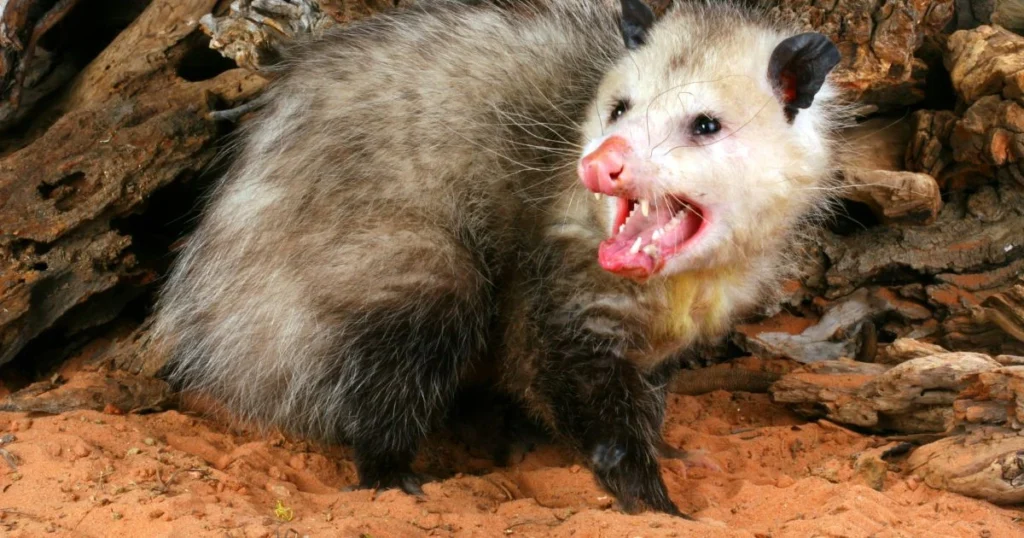
Opossums have distinct breeding seasons and a unique development process for their young. Their reproductive strategies are well adapted to their environment, allowing them to thrive in various habitats.
Opossums typically breed once a year, although some may breed twice depending on environmental conditions. The mating season occurs mostly from late winter to early spring. During this time, males will exhibit territorial behaviors and compete with females.
After a successful mating, the gestation period lasts about 12 to 13 days. Females can give birth to a litter ranging from 6 to 20 young, but survival rates are often lower. Mating pairs may be transient, with males not providing care post-mating.
Upon birth, opossum young are about the size of a jellybean and extremely underdeveloped. They crawl into the mother’s pouch immediately after birth, continuing their development.
The pouch provides a safe environment for approximately 2 to 3 months. After leaving the pouch, the young cling to their mother's back as she moves about. They are weaned by about 2 to 3 months old and will stay with the mother for several weeks as they learn to forage. Survival into adulthood is influenced by factors such as predation and environmental conditions.
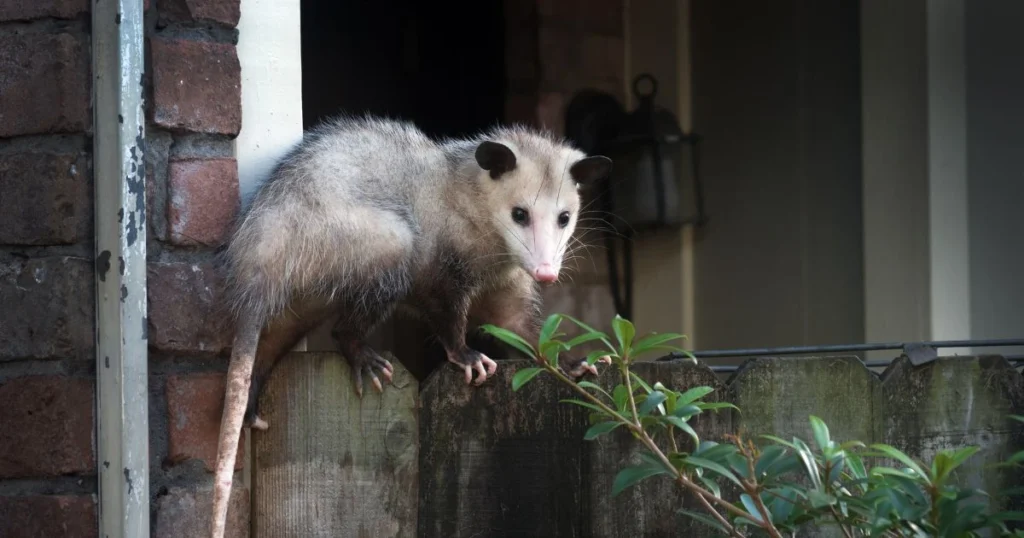
Understanding the relationship between humans and opossums is important for managing wildlife in urban areas. This section explores how opossums can be viewed as pests and their role in local ecosystems.
Opossums are often regarded as pests, particularly when they invade residential areas. They may scavenge through trash, leading to potential mess and odors. Additionally, they can enter garages, attics, or basements for shelter or food.
Despite their reputation, opossums are generally non-aggressive and tend to avoid confrontation. They are beneficial in controlling pest populations, such as ticks and insects, which can help reduce disease transmission. Inhabitants may consider securing garbage cans and sealing entry points to limit their presence.
Opossums are integral to their ecosystems, contributing to biodiversity. They help control insect populations and are scavengers that consume carrion. This behavior helps maintain a clean environment by reducing waste.
Their foraging habits promote the growth of certain plants as seeds pass through their digestive systems. Researching local wildlife reveals that opossums often coexist with humans without significant conflict.
Those experiencing wildlife issues should seek professional assistance. Critter Stop has a fantastic reputation and online customer reviews because it provides high-quality work and great customer service. Call Critter Stop at (214) 234-2616 for a free inspection to resolve any wildlife or pest problems on your property.
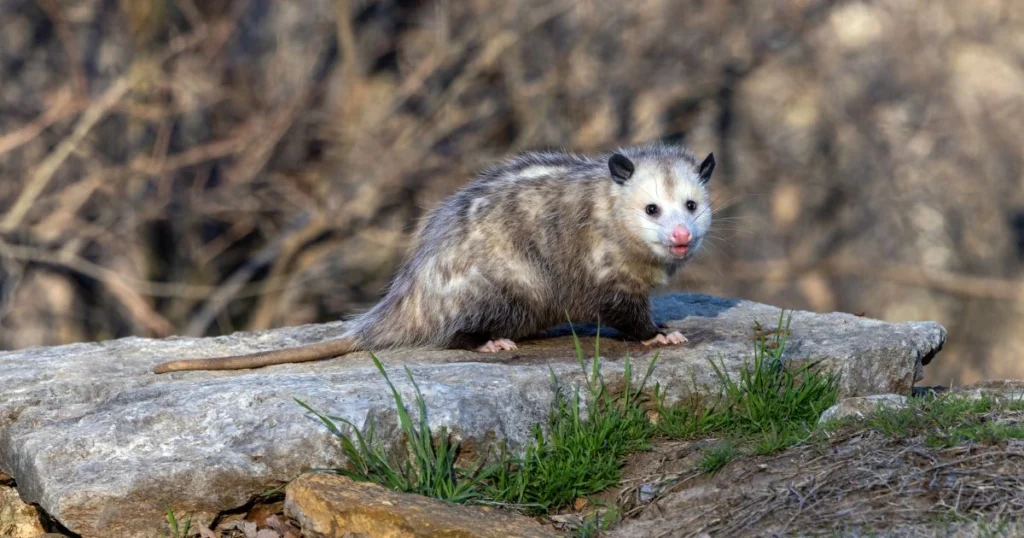
Opossums inhabit various environments, from urban settings to rural and forested areas. Their adaptability allows them to thrive in diverse habitats, each presenting unique challenges and benefits.
In urban areas, opossums often find shelter in gardens, under decks, and garages. They face challenges such as vehicle traffic, restricted food sources, and human encounters that can lead to relocation or harm.
The opossum's range extends across much of North America, primarily in the eastern and central regions. However, harsh winter conditions may limit their range in colder areas, leading to decreased populations.
In rural areas, opossums utilize natural habitats like forests and fields, relying on abundant food sources. In suburban environments, residential developments create altered landscapes, influencing their movement and habitation patterns.
Opossums favor habitats that provide cover and food, such as woodlands, wetlands, and brushy areas. They thrive in regions with accessible water sources and various plants for foraging.
In suburban neighborhoods, opossums often reside in backyards, parks, and residential gardens. They adapt by utilizing trash cans, pet food, and garden produce as food sources while sheltering in sheds or under structures.
In forested environments, opossums inhabit areas with dense underbrush and tree cover. These regions offer plentiful food options, including fruits, insects, small animals, and protection from predators.
Opossums can be found in agricultural areas, where they contribute to pest control by consuming insects and small rodents. Their presence helps maintain ecological balance within these ecosystems.
Opossums often live near human settlements, drawn by easy food access. Residents can manage their presence by maintaining clean yards, securing garbage, and using fencing to limit garden habitat opportunities.
Visit our Critter Library and learn more about our furry friends